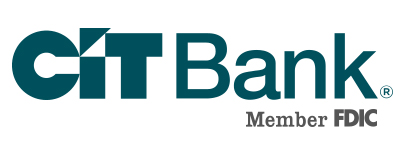Pros:
- Variety of accounts offered
- Competitive interest rate for savings
- Can open all accounts online
- Low opening amounts and no fees
Cons:
- Must become a member first
- Tiered interest rates on MMA
- High balances to earn interest
- Only one withdrawal per month for Ltd.
Pros:
- Low opening required amounts
- Variety of accounts available
- ATM fee reimbursements
- Competitive rates on most accounts
Cons:
- Must become a member first
- Accounts have tiered interest rates
- Daily cash limits on withdrawals
Digital Federal Credit Union offers a wide variety of personal deposit accounts. These accounts include:
- Free checking with different benefit levels
- HSA checking
- Primary savings
- Money market savings
- Ltd. savings
- Holiday Savings Club
- Regular CDs with terms from 3 to 60 months
- Jumbo CDs from 3 to 60 months
- Jump-Up CDs with a 15-month and 27-month term
- QuickStart CDs from 3 to 60 months
- Loans and credit cards
- Business accounts and lending options
The Primary savings account offers competitive interest rates. For the first $1,000, you earn over a six percent interest rate. Any amount over $1,000 earns a lower rate of 0.25 percent. Between the two rates, the account earns competitive interest rates. The Primary savings account is the account you must open to become a member of DCU.
You can open all DCU accounts online. You do not need to visit a branch location to open the accounts. To open DCU accounts, you must be at least 18 years old. You must provide a government-issued ID and Social Security Number. Your address, phone number, and date of birth are also required.
The highest amount required to open a DCU checking or savings account is only $5. To earn interest for some accounts requires a larger balance. The CDs require $100 or $500, depending on the CD. Jumbo CDs require $25,000. DCU accounts do not have monthly fees or a required amount to keep in the account to avoid a fee.
To open an account with DCU, you must become a member of the credit union. You become a member by opening the Primary savings account with at least $5. Once you open that account and become a member, you can open any other DCU account.
The DCU money market account has tiered interest rates. To earn the most competitive interest rates requires a balance of at least $100,000. Lower balances earn interest, just not the highest rate.
The Ltd. savings account requires a balance of $25,000 to earn any interest. Any balance over $25,000 earns the most competitive rate, but balances below do not earn any interest.
Only one withdrawal is allowed per month from the Ltd. savings account. For every other withdrawal, there is a fee of $25. To earn interest on this account requires a balance of $25,000. There is no required amount to open the account.
Navy Federal accounts have low opening required amounts. The savings account only requires $5 to open. The money market account does not have a set amount required to open, but to earn interest requires $2,500. The checking accounts do not have a set amount required to open. The CDs have tiered opening required amounts. The lowest amount to open a regular CD is $1,000. Special CD offers require lower opening amounts.
There are a wide variety of accounts offered through Navy Federal. They offer a savings account, money market account, and CDs. Their CD terms range from three-month terms to seven-year terms. Navy Federal offers five checking accounts. Those accounts include one for students, an online account, and an active duty account. Navy Federal also offers loans and credit cards.
Most Navy Federal checking accounts offer ATM fee reimbursement. Only the Everyday Checking account does not. The reimbursement amount ranges from $10 to $20, depending on the account. Some accounts require a direct deposit to earn the reimbursement.
Most all Navy Federal accounts offer competitive interest rates. The CDs offer the most competitive interest rates. Navy Federal savings and checking accounts earn interest. The rates are lower than online account rates. The money market account rates are slightly lower than online rates. These rates are higher than typical bank rates.
Before you open an account with Navy Federal, you must first become a member of the credit union. Servicemembers and veterans are eligible to join Navy Federal. Department of Defense employees are eligible. Family members of each of these groups can become members of Navy Federal Credit Union.
Navy Federal money market and Flagship checking account have tiered interest rates. To earn the most competitive rate on the MMA requires a balance of at least $50,000. The checking account requires $25,000. To earn the most competitive rate on Navy Federal CDs requires $100,000.
Navy Federal only allows for a daily cash withdrawal of $600. This includes cash from an ATM, a branch, or receiving cash back. There is a daily transaction limit of $3,000 for most checking accounts and $5,000 for the Flagship checking. Their accounts do not typically have limits on the number of transactions.


